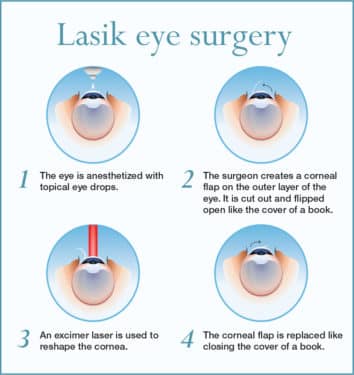Refractive Lens Exchange Explained: What Your Ophthalmologist Isn't Informing You
Refractive Lens Exchange Explained: What Your Ophthalmologist Isn't Informing You
Blog Article
Post Author-Sumner Cochran
Have you ever thought about Refractive Lens Exchange (RLE) as a choice for vision correction? While it isn't as commonly discussed as LASIK, RLE could be a game-changer for your eyesight. Many people overlook its benefits, assuming conventional approaches are their only option. Yet what are the genuine benefits, and what might your eye doctor not be informing you concerning this treatment? Allow's explore the ins and outs of RLE together.
Recognizing Refractive Lens Exchange: The Fundamentals
Refractive lens exchange (RLE) is a surgery that can considerably boost your vision, specifically if you're taking care of presbyopia or extreme refractive mistakes.
Throughout RLE, your eye doctor removes your eye's all-natural lens and changes it with a fabricated one customized to your vision needs. This treatment can fix nearsightedness, farsightedness, and astigmatism, giving you more clear vision without counting on glasses or contact lenses.
The surgical treatment is usually fast, taking less than an hour, and most patients experience minimal pain. Recovery is reasonably quickly, enabling you to go back to your day-to-day activities quickly after.
If you're taking into consideration RLE, speaking with your ophthalmologist can aid you establish if it's the appropriate selection for you.
Trick Differences In Between RLE and Traditional Cataract Surgical Procedure
While both refractive lens exchange (RLE) and typical cataract surgical treatment entail changing the eye's natural lens, their key objectives and patient profiles vary significantly.
RLE is aimed at people looking for to decrease their reliance on glasses or call lenses because of refractive errors, typically before cataracts create. On https://www.webmd.com/eye-health/eye-health-retinal-detachment , conventional cataract surgical treatment commonly targets patients that have actually developed cataracts, which shadow the lens and hinder vision.
The lenses made use of in RLE can offer a wider range of vision adjustment, while typical cataract surgery typically includes basic monofocal lenses.
In addition, RLE candidates are typically younger and in great total health, whereas cataract patients may be older and have other health and wellness worries.
Picking the best treatment depends on your details vision requirements and conditions.
Prospective Advantages and Considerations of RLE
If you're taking into consideration refractive lens exchange (RLE), you'll find a number of prospective advantages that might boost your lifestyle.
RLE can offer you with more clear vision, decreasing or getting rid of the need for glasses or call lenses. https://collegian.com/2021/06/category-news-csu-system-board-of-governors-approves-tuition-increase/ supplies a possibility to attend to presbyopia and other refractive mistakes simultaneously, usually enhancing your general visual acuity.
In addition, RLE can be a great choice if you're not an ideal candidate for LASIK. Nevertheless, it is essential to consider the factors to consider, like the cost, prospective threats, and the healing period.
Reviewing your details requirements with your ophthalmologist can help you make an informed choice, ensuring you select the best course for your vision adjustment.
Verdict
In conclusion, refractive lens exchange uses an unique remedy for vision improvement that exceeds what LASIK can supply. It's important to weigh the benefits against possible risks and prices before making a decision. Don't hesitate to ask your ophthalmologist the tough questions to ensure you completely understand the procedure and its effects for your vision. With the appropriate info, you can with confidence choose the very best alternative for your eyes and way of life.
